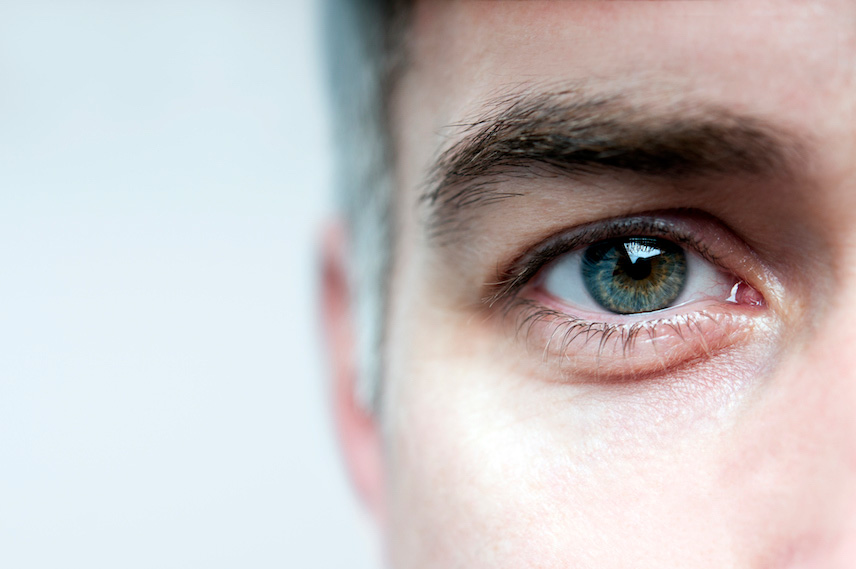[vc_row row_scroll_icon="no"][vc_column][vc_column_text] Our early screening and prevention of mental health conditions service is a preventive approach to mental wellbeing. Its aim is to identify mental health vulnerabilities as early as possible to prevent future problems in people who may be vulnerable, and promote good mental health and wellbeing. At The London Psychiatry Centre, we offer innovative, evidence-based and holistic screening for early signs of mental health conditions in adolescents and young adults who are distressed for the first time by subtle mental health problems. We also offer state-of-the-art screening for those who may have a familial vulnerability for mental health disorders, for example, a first-degree relative with bipolar disorder or psychosis. There is high familial heritability for several mental health conditions. Children of parents with psychiatric conditions have a 32% probability of developing a mental health condition (Rasic et al., 2014). Our clinician in this area, Prof. Dr Paolo Fusar-Poli, is skilled in the detection and management of warning signs and vulnerable mental states in young people. We firmly believe that the best treatment to improve outcomes of mental health conditions is early recognition of warning signs, prevention and promotion of good mental health and resilience. It has recently been demonstrated that the global peak age at onset across all mental disorders is 14 years, with most mental disorders originating before 25 years (Solmi et al., 2022). This represents an unprecedented window of opportunity to support young people under mental stress or with familial vulnerability for mental disorders and prevent future problems.[/vc_column_text][/vc_column][/vc_row][vc_row row_scroll_icon="no" css=".vc_custom_1678877123028{margin-top: 20px !important;}"][vc_column][eltd_accordion style="accordion"][eltd_accordion_tab icon_pack="" title="What are the early signs of mental health issues in young adults?"][vc_column_text]Early symptoms of mental health issues can vary depending on the type of personal vulnerability, but may include having one family member with a mental disorder and showing at least one of the issues listed below: Withdrawal from friends and or family Low or elevated mood or frequent mood shifts Irritability Difficulty concentrating at school/college/university and declining grades Unusual transitory experiences such as hearing voices or having odd beliefs Changes in eating patterns Sleeping problems Loss of interest in activities or hobbies Being worried about their mental health Seeking help for these emerging mental health problems may be challenging for young people. Our clinician will ensure that patients are made to feel welcome and will facilitate a natural and spontaneous encounter.[/vc_column_text][/eltd_accordion_tab][eltd_accordion_tab icon_pack="" title="WHAT CAN CAUSE THE ONSET OF MENTAL HEALTH PROBLEMS IN YOUNG ADULTS?"][vc_column_text]There are a number of factors...
[vc_row row_scroll_icon="no"][vc_column][vc_column_text] The London Psychiatry Centre, together with Dr Bernadette Coker, Dr Abbi Lulsegged, and Dr Robin Roberts has established a long COVID clinic for sufferers of COVID-19. Most sufferers of long COVID experience significant symptoms which impair their quality of life. We provide a functional medicine/integrated approach which allows us to address and treat all aspects of the condition to help you get your normal life back again as quickly as possible. What Is Long COVID? 'Long COVID' is a term commonly used to describe the symptoms that continue after one month of having COVID-19 or develop after acute COVID‑19. Long COVID can affect your ability to work and significantly impact your quality of life. What Is The Long COVID Clinic? [/vc_column_text][vc_empty_space height="20px"][vc_column_text] You’re In Safe Hands – Meet The Long COVID Clinic Team The London Psychiatry Centre team of psychiatrists, psychologists and psychotherapists is an experienced, multidisciplinary team is well equipped to help you recover from the psychological impact of long COVID. Dr Bernadette Coker (The Coker Chest Clinic) is a Senior Respiratory Medicine Consultant. She has extensive experience in respiratory viral illnesses and their complications, including chronic fatigue syndrome. Dr Abbi Lulsegged (HEALTH 121 LTD) is a Consultant Physician with an interest in diabetes and endocrinology. Dr Lulsegged has extensive experience in treating patients with unexplained medical conditions, fatigue, and those with chronic debilitating conditions. Dr Robin Roberts is a Consultant Cardiologist with a particular interest in the management of angina and heart failure. COVID-19 affects the heart in a number of ways, in particular causing inflammation of the heart muscle (myocarditis) and affecting the rhythm of the heart (arrhythmias). Dr Roberts has joined the team to assess and help patients with cardiac complications of long COVID. [/vc_column_text][vc_empty_space height="20px"][vc_column_text]1 in 5 people with a confirmed COVID-19 diagnosis (whether mild, moderate or severe requiring hospitalisation) have had a psychiatric diagnosis within three months of being diagnosed. We have an experienced and multidisciplinary team of physicians, psychiatrists, and psychologists which allows us to provide exceptional care and support to our patients. Your experience at our long COVID clinic will begin with a medical assessment in line with the National Institute for Health and Care Excellence (NICE) guidelines to provide a diagnosis and assessment of symptoms. Additional investigations may be required for complex cases but this will be discussed after the assessment. Once a diagnosis is established, a long COVID treatment and rehabilitation plan will be recommended. This will be tailored to the individual and may...
[vc_row row_scroll_icon="no"][vc_column][vc_column_text][/vc_column_text][vc_column_text] Preventive and genetic stress prediction and management service. Imagine if there was a health test that could let you know how you react to stress. Being under stress increases your risk of mental and physical illnesses. At The London Psychiatry Centre we are now offering genetic testing which allows you to discover if you are predisposed to psychiatric conditions and or physical conditions and we can advise you how to modify your lifestyle to manage and reduce that risk. Psychiatry is moving rapidly towards a direction which focuses on trying to clarify the genetics behind serious mental health conditions like depression, bipolar disorder, and schizophrenia. However, mental disorders are incredibly complex and caused by a multitude of factors. The role genetics plays is still actively being researched but the available evidence shows that family history remains the single most significant evidence that mental disorders may be inherited. Although, family history does not reliably predict what type of mental disorder is inherited. Environmental factors, influences from the environment and surroundings we live in, also play a key role. Genetic testing, when analysed in tandem with lifestyle and environmental factors, can play an important part in helping us understand whether we may be susceptible to stress and subsequently mental health conditions and so enable us take action to modify any relevant lifestyle and environmental factors in order to help prevent such disorders. This approach builds on the fact that genes are not our destiny and that there are things we can do to limit or alter the possible impact of genetic predisposition. The preventive service we offer aims to draw on proactive management and individualised advice.[/vc_column_text][/vc_column][/vc_row][vc_row row_scroll_icon="no" css=".vc_custom_1560156289663{margin-top: 10px !important;}"][vc_column][eltd_accordion style="toggle"][eltd_accordion_tab icon_pack="" title="Is mental illness hereditary? If I have a family history of serious mental illness will I get it?"][vc_column_text]Is mental illness genetic? Most people who have mental illness won’t have relatives with the same condition, but research does suggest mental illness runs in families. As a result of the complex interplay between genetics and the environment and the fact that these factors differ from person to person it follows that just because an individual possesses a certain genetic risk factor, it does not mean that they are destined to go on and develop a mental disorder. There is emerging evidence that life experiences add molecular switches to the genes that control our brain activity and so affect how susceptible we are to different forms...
[vc_row row_scroll_icon="no"][vc_column][vc_column_text] Are you planning to get pregnant and have an existing mental illness? Pregnancy and the first year post birth can be a particularly challenging time – hormones and lack of sleep can influence emotional and mental wellbeing. Perinatal mental health illness affects up to 20% of women. Perinatal mental health refers to mental health issues during pregnancy (antenatal) and up to the first year after birth (postnatal). It often goes undiagnosed, but left untreated, perinatal mental illness can have a significant detrimental impact on a family. Here at The London Psychiatry Centre, our preconception advice service helps to manage mental health right from the outset, even before conception. Consultant Psychiatrist, Dr Agnieszka Klimowicz is our perinatal specialist and has extensive experience in the field. She provides evidence-based care to support women who are currently well but are at risk of relapse if their treatment would be withdrawn during pregnancy or post-birth. The stigma around mental health means that many mothers are fearful to seek help, worrying that their baby will be taken away if they admit they are suffering with mental illness, and end up suffering in silence. By taking a preventative approach, Dr Klimowicz can help to manage any issues and maintain optimal mental health throughout pregnancy and after birth, so you can enjoy your pregnancy and build confidence in being a parent. Partners are welcome to attend appointments, or for part of the appointment if the patient is happy for their participation. Receive the very best support for you and your future family. If you’d like to discuss with our team if our preconception advice service can help you, call us on 020 7580 4224.[/vc_column_text][/vc_column][/vc_row][vc_row row_scroll_icon="no" css=".vc_custom_1556267497567{margin-top: 20px !important;}"][vc_column][eltd_accordion style="toggle"][eltd_accordion_tab icon_pack="" title="Why might I need perinatal mental health support?"][vc_column_text] Management of mental illnesses during pregnancy and post-delivery requires special consideration. If you are planning to get pregnant, we are able to provide the support needed. Dr Klimowicz often sees women with an established diagnosis. These include bipolar disorder, anxiety disorders, a history of severe depression, a history of OCD, PTSD and schizophrenia. If you are at risk of developing a mental health problem during or after birth our perinatal mental health service would also be beneficial. For example, if you have a family history of bipolar disorder, postnatal depression, postpartum psychosis or have noticed a deterioration in your mental health since becoming pregnant. Although mental health problems around the time of child birth are no more...
[vc_row row_scroll_icon="no"][vc_column][vc_column_text] What we put into our bodies can have a significant impact on your physical and mental wellbeing. Here at The London Psychiatry Centre we offer complementary therapy, naturopathic nutrition. Food is so much more than fuel and so it is important to take responsibility for what we put into our bodies and consider how different foods impact the body. What Is Naturopathic Nutrition? Naturopathic nutrition is a complementary therapy. It is the use of whole, chemical-free and organic foods as medicine. Food preparation and nutrients can make an impact on certain diseases affecting the immune, digestive, nervous and endocrine system. With the demanding lives we lead, naturopathic nutrition can be used to improve health and wellbeing and to aid recovery from a range of mental illnesses. Our Naturopathic Nutritionist, Ms Tautvile Sliazaite, will analyse eating habits, medical history (yours and your family’s), and health issues. Ms Sliazaite’s focus is on creating an educational, balanced and bespoke plan for each patient. Ms Sliazaite is a member of the British Association for Applied Nutrition & Nutritional Therapy (BANT), Complementary and Natural Healthcare Council (CNHC). What Conditions Can Naturopathic Nutrition Support? Naturopathic nutrition can support the following health problems: Migraines Addictions Eating disorders ADHD Depression Obesity Increased stress Fatigue Insomnia Brain injury Poor memory Anxiety Thyroid problems, especially Hashimoto’s Thyroiditis. [/vc_column_text][/vc_column][/vc_row][vc_row row_scroll_icon="no"][vc_column][vc_column_text] [/vc_column_text][/vc_column][/vc_row][vc_row row_scroll_icon="no" content_aligment="center"][vc_column][eltd_icon icon_pack="linear_icons" linear_icon="lnr-phone" size="eltd-icon-medium" type="normal" icon_animation=""][vc_column_text]If you have any questions or would like to book an appointment with Ms Sliazaite, please call our reception team on 020 7580 4224.[/vc_column_text][/vc_column][/vc_row]...
Issues with the endocrine system (hormones) can be the cause of psychiatric problems and can have a significant impact on mental health. Here at The London Psychiatry Centre, we consider the endocrinology system and if we feel patients may benefit from endocrinology treatment, we are able to offer this alongside their existing treatment. What Is Endocrinology? Endocrinology is the study of hormones; chemicals released by various glands which in turn, control many different functions. Some hormones such as insulin and oestrogen are very well known, others, like oxytocin, the hormone that amongst other things, helps with bonding and is perhaps not so well appreciated. Endocrinology And Mental Health We have come to understand that hormones play a significant role in mental wellbeing and are implicated in psychiatric conditions. Inadequate thyroid hormone secretion is for example, associated with depression and poor cognition. Overproduction of thyroid hormones is commonly associated with anxiety, irritability and in severe cases, psychosis. Conversely, psychiatric conditions can cause unfavourable hormonal secretion. A classic example is cortisol, the stress hormone, which is overproduced in people suffering with significant depression. Excess secretion of cortisol is associated with weight gain and increased diabetes risk. We have come to understand that hormones play a significant role in mental wellbeing and are implicated in psychiatric conditions. Endocrinology And Diabetes The endocrine system is involved with diabetes and so the risk of diabetes mellitus (unregulated blood sugar levels) is higher in patients with psychiatric conditions such as bipolar disorders, schizophrenia (2-4 times increased risk). Some of the medications used in psychiatric conditions can have an adverse effect on metabolism. Antipsychotics such as Olanzapine significantly increase the risk of weight gain and developing Type 2 diabetes. The exact mechanism is unclear but, interesting studies point to a possible role from unfavourable gut bacteria amongst others. It is increasingly recognised that hormones can play a hugely important role in the treatment of psychiatric conditions. Seemingly very high doses of thyroxine have a significant stabilising effect in bipolar disorders and its use is effective and safe where other therapies have failed. [vc_row row_scroll_icon="no" content_aligment="center"][vc_column][eltd_icon icon_pack="linear_icons" linear_icon="lnr-phone" size="eltd-icon-medium" type="normal" icon_animation=""][vc_column_text]To find out more about endocrinology, or book an appointment, give us a call on 020 7580 4224 today.[/vc_column_text][/vc_column][/vc_row]...
[vc_row row_scroll_icon="no"][vc_column][vc_column_text][/vc_column_text][vc_column_text] Am I depressed? Take the PHQ-9 depression test to get a score which will give an indication of if you are depressed. Am I depressed? Take the PHQ-9 depression test to get a score which will give an indication of if you are depressed. Depression is the third most common reason for a visit to the GP in Britain. It is the most common psychiatric disorder by far. At any given point, it is estimated that 1 in every 10 people is living with depression or anxiety. Almost 1 in every 5 people will suffer an episode of depression in the course of their lifetime, and around two thirds of adults will experience a depressed mood significant enough to interfere with their normal life. Women are around twice as likely as men to be depressed. Trying to cope amidst a chronic feeling of low mood, physical tiredness or extreme anxiety can be tough. Persistent bad feelings about oneself and life in general are draining, unhelpful and most importantly, not your fault. Depression can affect people of all ages and from all walks of life and circumstances. If you have been struggling with depression, know that there is something that can be done about it. At the London Psychiatry Centre, we are experts in tackling this condition. With the right help, you can feel better. How Do I Know If I Am Depressed? It can be difficult to identify when you are suffering with Depression because the condition lowers self-esteem and feelings of confidence in your own judgment. Ironically, you may be more likely to think you’re ‘making a fuss about nothing’ at a time when you most need help.[/vc_column_text][/vc_column][/vc_row][vc_row row_scroll_icon="no" content_aligment="center" css=".vc_custom_1500373361164{margin-top: 20px !important;}"][vc_column][eltd_icon icon_pack="linear_icons" linear_icon="lnr-phone" size="eltd-icon-medium" type="normal" icon_animation=""][vc_column_text]If you or someone you know is suffering from a depressive disorder, book an appointment with one of our experts. Our skilled practitioners treat all kinds of depressive illnesses. We will do everything possible to help you recover and enjoy the best life has to offer. Call us now on 020 7580 4224.[/vc_column_text][/vc_column][/vc_row]...
[vc_row row_scroll_icon="no"][vc_column][vc_column_text] Whether you are suffering from alcohol addiction, gambling addiction or prescription drug addiction, here at The London Psychiatry Centre, we can offer effective treatment for addiction at our clinic on Harley Street. Our addiction experts have years of experience providing effective treatment. Anyone suffering with addiction knows it can be an extremely frustrating and often isolating. With the right help, addiction can be overcome. At The London Psychiatry Centre, we work with the most highly-regarded experts in the field and employ the most up-to-date evidence-based treatments to get you back on your feet as quickly as possible.[/vc_column_text][/vc_column][/vc_row][vc_row row_scroll_icon="no" content_aligment="center" css=".vc_custom_1500373361164{margin-top: 20px !important;}"][vc_column][/vc_column][vc_column][eltd_icon icon_pack="linear_icons" linear_icon="lnr-phone" size="eltd-icon-medium" type="normal" icon_animation=""][vc_column_text]If you have any questions or would like to book a consultation with one of our addiction experts, simply call us on 020 7580 4224. Our team is here waiting to help.[/vc_column_text][/vc_column][/vc_row]...
[vc_row row_scroll_icon="no"][vc_column][vc_column_text css=".vc_custom_1517572552138{margin-bottom: 15px !important;}"][/vc_column_text][vc_column_text] [embed width="425" height="239"]http://www.youtube.com/watch?v=81FP_7JUQLs[/embed] Video: Mental Health In Children & Young People Although serious mental illness is rare in young people, it is not uncommon for children to experience emotional and behavioural problems which affect their daily lives and relationships. These are often a response to difficulties in the family or school, or a stressful event, such as bereavement, bullying, or parental separation. They may also be associated with physical illness or developmental disabilities, including learning difficulties, ADHD or Autistic Spectrum Disorder. Our experienced Child & Adolescent Mental Health Services (CAMHS) team is here to help. [embed width="425" height="239"]http://www.youtube.com/watch?v=81FP_7JUQLs[/embed] Video: Mental Health In Children & Young People Assessment of a child or young person’s mental health therefore involves looking at their medical and developmental history, family history, school functioning and relationships at home and school, and getting the perspectives of the child themselves, their parents and other relevant adults such as teachers. A range of treatments may be offered, including 1-to-1 sessions with the child, family work, liaison with other professionals and medication.[/vc_column_text][vc_column_text] Some Problems That We Could Help With [/vc_column_text][/vc_column][/vc_row][vc_row row_scroll_icon="no" css=".vc_custom_1501253242148{margin-top: 10px !important;}"][vc_column][eltd_accordion style="toggle"][eltd_accordion_tab icon_pack="" title="Attention Deficit Hyperactivity Disorder (ADHD) in Children"][vc_column_text]Attention Deficit Hyperactivity Disorder (ADHD is a disorder which affects everyday life. Children with ADHD often find it difficult to sit still and listen, find it tricky to follow instructions, and after often seen as troublemakers. ADHD can manifest in a number of ways, including an inability to learn and play along with others. Read more about ADHD here.[/vc_column_text][/eltd_accordion_tab][eltd_accordion_tab icon_pack="" title="Childhood Anxiety"][vc_column_text]Anxiety is an experience which we all have at some point in our lives to varying degrees. Sometimes it can usefully motivate us to do things that we may not want to do, such as studying for an exam or attending an interview. However, when anxiety becomes overwhelming and we avoid or are prevented from doing our best in tasks it can become very stressful. Severe anxiety may be triggered by a stressful event, such as bereavement or bullying. Symptoms can include somatic symptoms such as headaches or tummy aches, chest pains, palpitations, cold hands and feet, blurred vision, dizziness and nausea, which can seriously affect our everyday functioning, although there is no actual physical illness.[/vc_column_text][/eltd_accordion_tab][eltd_accordion_tab icon_pack="" title="Autistic Spectrum Disorders (ASD) in Children"][vc_column_text]These include Asperger syndrome and produce difficulties in 3 areas: Social interaction – including lack of understanding and awareness of other people's emotions and feelings. Language and communication skills – including...
[vc_row row_scroll_icon="no"][vc_column][vc_column_text] Here at The London Psychiatry Centre, we are able to provide expert Eye Movement Desensitisation and Reprocessing (EMDR) therapy, a recommended first line treatment for trauma victims. ETNS can also be used for epilepsy, PTSD and ADHD. EMDR is a type of psychotherapy for the treatment of trauma and evidence has indicated positive outcomes. For a first-hand account on the effectiveness of EMDR, please see our Testimonials page. Trauma symptoms can result from undergoing an extremely painful or challenging life experience – for example exposure to war, or the breakdown of a marriage. Trauma appears broadly as intrusive symptoms (thoughts, recollections, perceptions) of the traumatic events, avoidance of reminders (places, people or feelings associated with the trauma) and arousal (difficulty concentrating, sleep disturbances and irritability). If you have been experiencing the effects of trauma, there’s no need to suffer alone. EMDR has been widely endorsed as an effective trauma treatment in many countries, including the UK. At the London Psychiatry Centre we offer the standard EMDR as well as EMDR via the latest technology of Neurotek TM equipment – which in our experience has yielded better results in more severe and treatment-resistant cases. We have provided EMDR for survivors of London’s 7/7 attack, the US 9/11 bombings, as well as Al Qaeda terrorist attacks in Jordan and Dahab in the Middle East. We have also treated survivors of the Thailand Tsunami, the Iraq and Afghanistan wars, and the South African Bush Wars. Furthermore, we have significant experience in successfully treating victims of ‘non-life-threatening’ situations like extra marital affairs, work-place bullying, burglaries, armed robberies, road traffic accidents, surgical complications, and physical or sexual abuse using EMDR.[/vc_column_text][/vc_column][/vc_row][vc_row row_scroll_icon="no" css=".vc_custom_1501497593009{margin-top: 20px !important;}"][vc_column][eltd_accordion style="toggle"][eltd_accordion_tab icon_pack="" title="What Is EMDR?"][vc_column_text]EMDR is a highly-regarded evidence-based treatment discovered accidentally by Francine Shapiro in 1987, who found that following a line of trees in the park whilst walking reduced distress from upsetting memories. She then developed and perfected the EMDR technique.[/vc_column_text][/eltd_accordion_tab][eltd_accordion_tab icon_pack="" title="How Effective is EMDR?"][vc_column_text]EMDR gives significant results after a few sessions, in contrast with CBT which is a more lengthy treatment for trauma. Both therapies can also be combined. Read first hand evidence on the effectiveness of the EMDR treatment on our Testimonials page.[/vc_column_text][/eltd_accordion_tab][eltd_accordion_tab icon_pack="" title="What Are The Side Effects Of EMDR?"][vc_column_text]As with any psychotherapy treatment, there is a chance that EMDR can lead to high levels of emotions or physical sensations, distressing memories may emerge, and may continue to emerge after the treatment...











